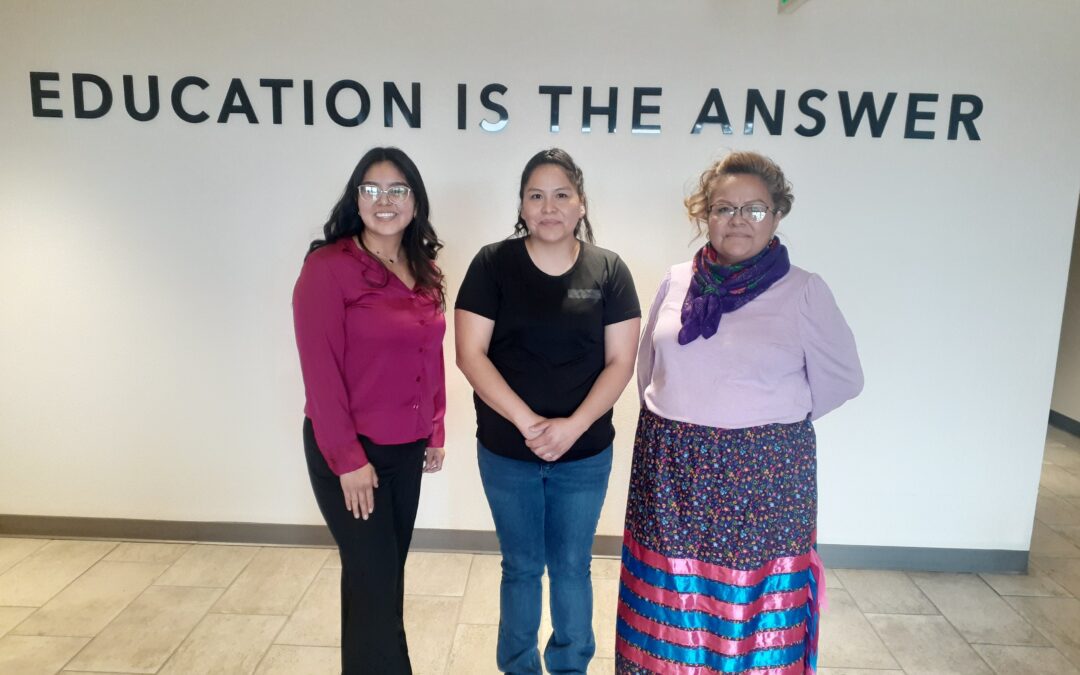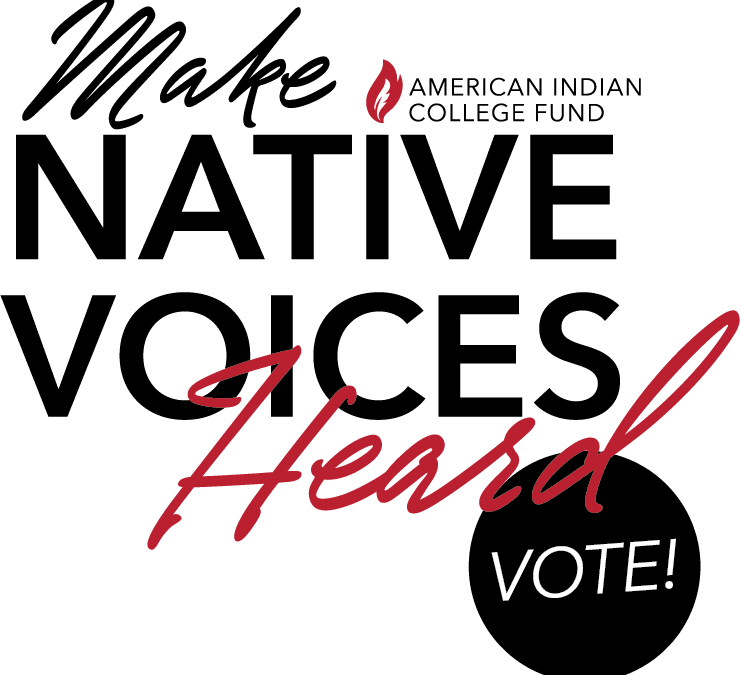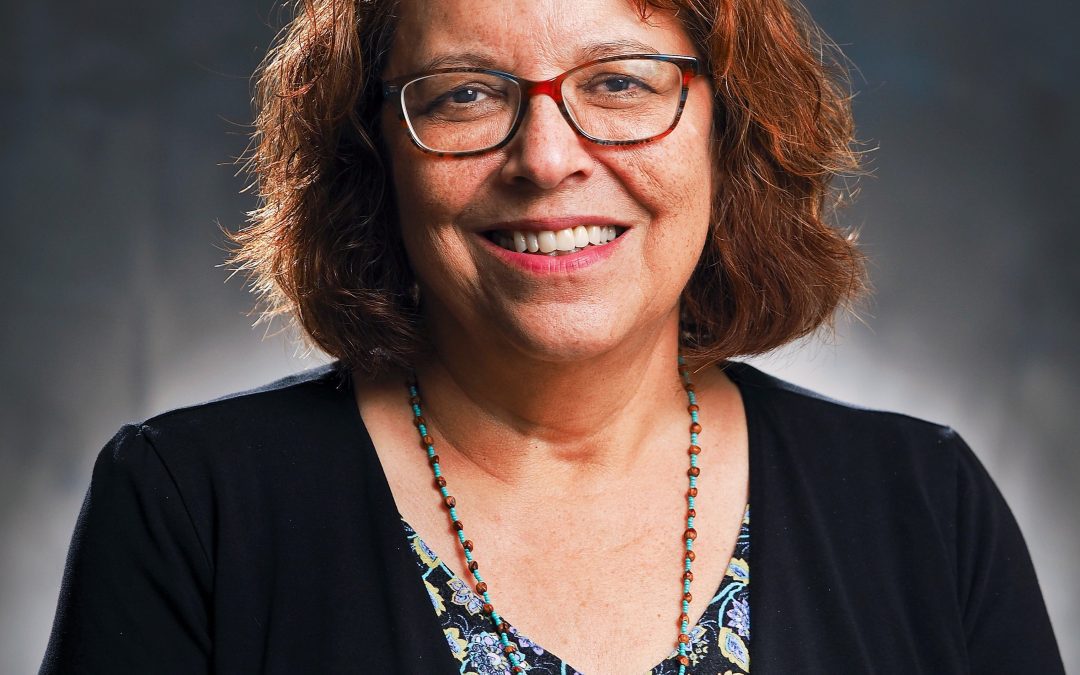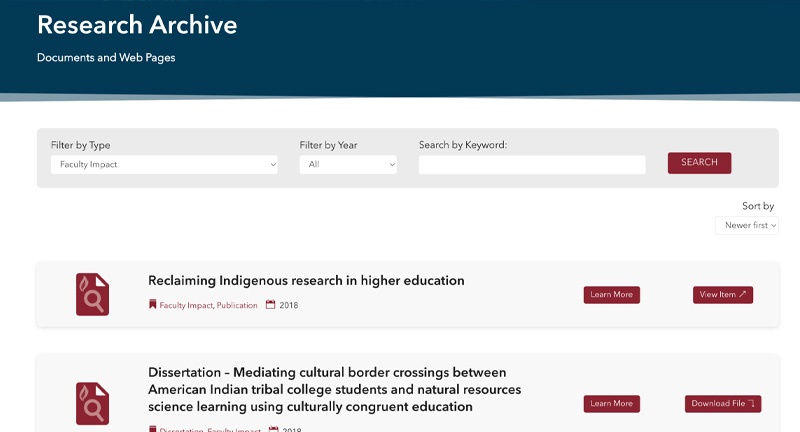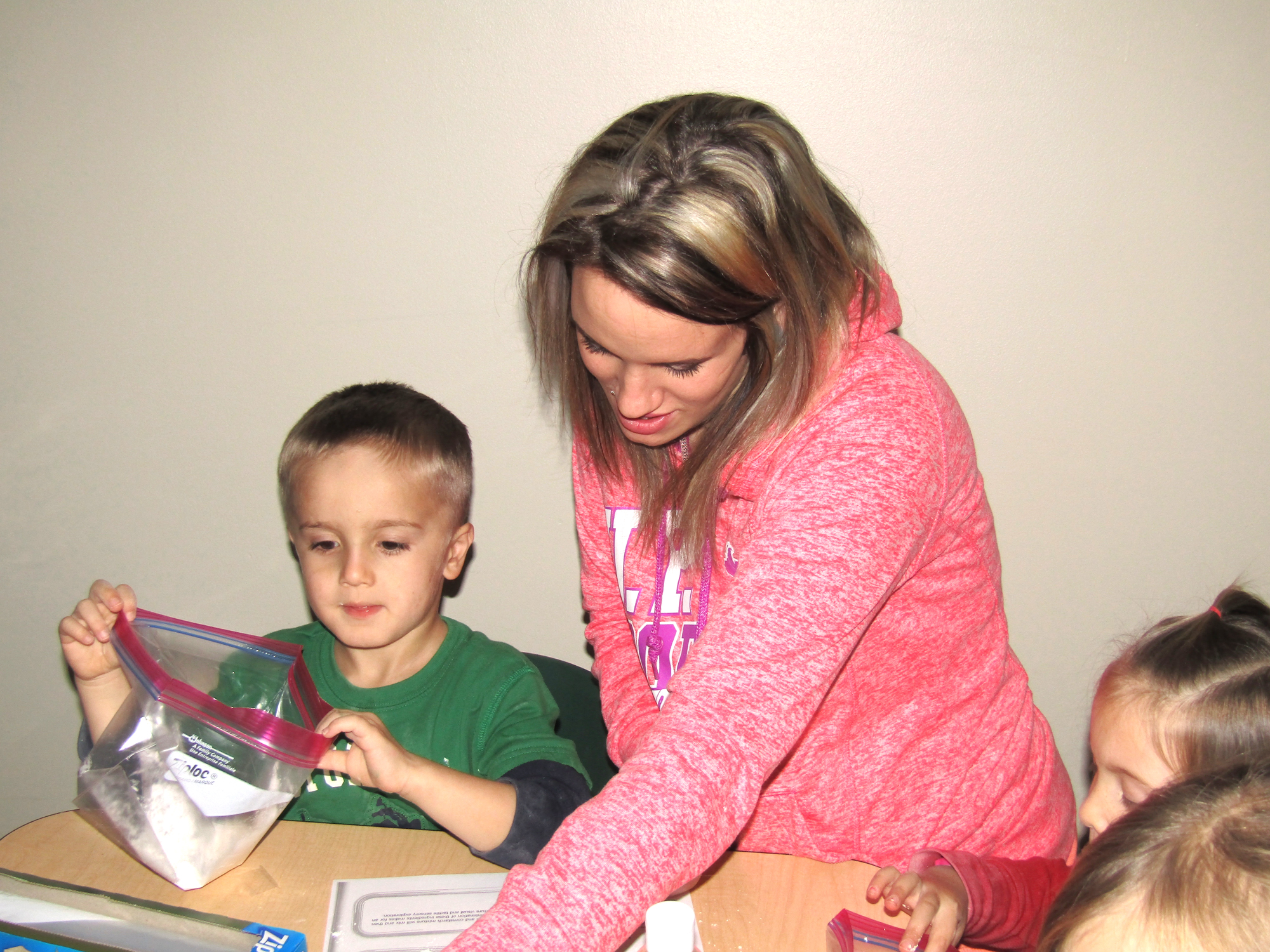
An example of a “Family Fun Event Planning”, is the engagement of a mother and son working together to create bags for an activity called Magic Touch at KBOCC.
by Cheryl LaRose, KBOCC Restorative Teachings Project Director
At Keweenaw Bay Ojibwa Community College (KBOCC) traditional Ojibwe teachings which portray the family as a part of the framework that honors the individual and the collective groups to which the individual belongs. Throughout the year, Migiziinsag (Little Eagles), an early childhood program for four-year-old children, engages by incorporating aspects of indigenous early learning, Anishinaabe language, cultural ceremonies, nutrition and physical activities. The “Family Fun Event Planning Framework” embraces four areas:
- Parent Literacy: Literacy activities are provided that lead to economic self-sufficiency. Opportunities include ways to develop communication, decision-making, interpersonal and lifelong learning skills.
- Parent Education: Activities that support the parent as the primary teacher of their child, including early learning activities in the home environment to engage parents as a full partner in their child’s education.
- Early Childhood: Age-appropriate educational activities to prepare children for success in school and in life. Education opportunities are offered in language and literacy, personal and social development, mathematical and scientific thinking, social studies, art and physical development.
- Interactive Ojibwe Culture: Engage in language-rich literacy activities with parents and their children.
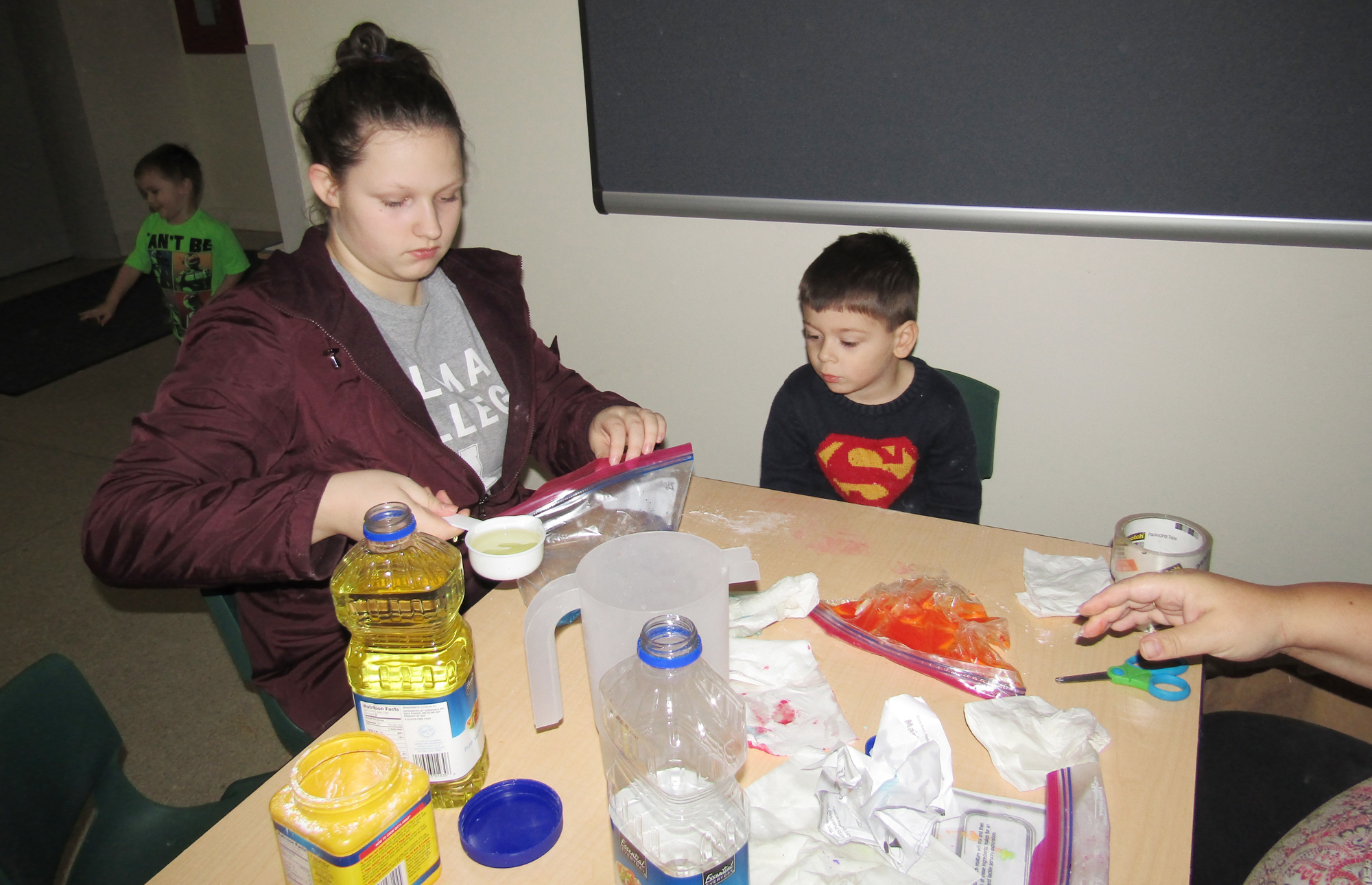
Another photo of KBOCC activity called Magic Touch, siblings working together to fill bags with oil, corn starch and liquid water color.
Migiziinsag families participated in a family fun night filled with interactive activities through a collaboration of local networks and services. The early learning teachers set up stations for the families to include:
- Opportunities for parents to get information on resume building and resources for employment through the Keweenaw Bay Indian Community (KBIC). This premise is that this parent literacy activity may lead to economic self-sufficiency.
- The Healthy Start Program, as part of KBIC Health Systems, provided education to parents through a Car Seat Clinic to all families.
- KBOCC Restorative Teaching’s Culture Mentor engages with children and parents in providing a game and stories. The “Moccasin Game” provided opportunities for children and their parents to match colors to words using the Ojibwe language.
- KBOCC Language and Literacy Coordinator through the Department of Education grant provides developmentally appropriate STEM and literacy activities for children.
- Crazy Joe’s Salsa, a locally owned business, provided a variety of fresh, preservative- and gluten-free salsas, ranging from tomato to cucumber base.
The families are excited for our next family fun night which will be held on March 17th. Plans are being made with Rodney Loonsfoot, a member of the KBIC Tribal Council and Fatherhood Initiative Project Director, to present and play the traditional Ojibwe game for families called the “Snow Snake Game.”
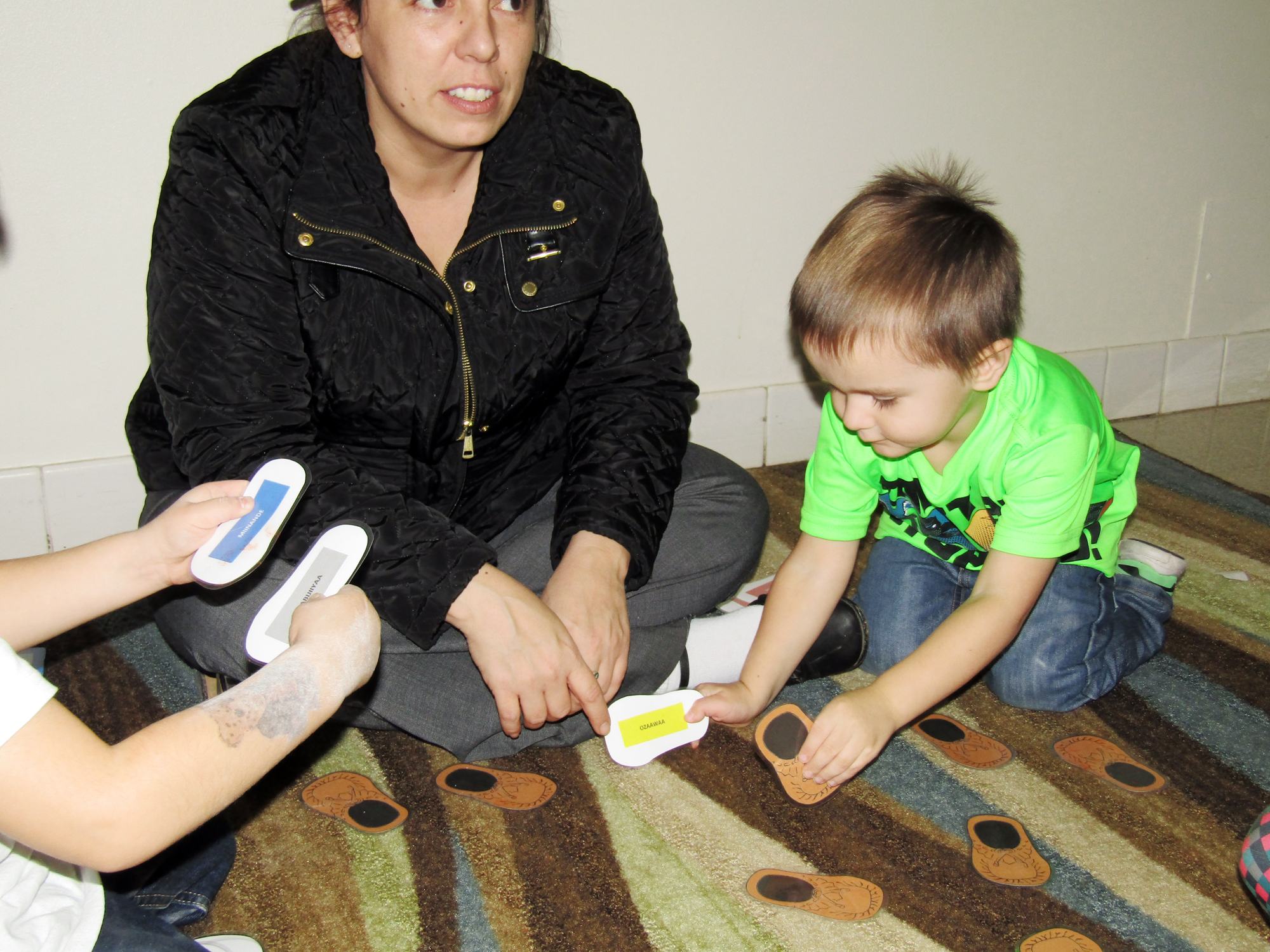
KBOCC cultural consultant engages children during a moccasin color matching game using Ojibwe words.

Come learn more about KBOCC “Family Fun Event Planning Framework” and “Indicators for Family Fun Event Framework” by clicking on the PDF here.

